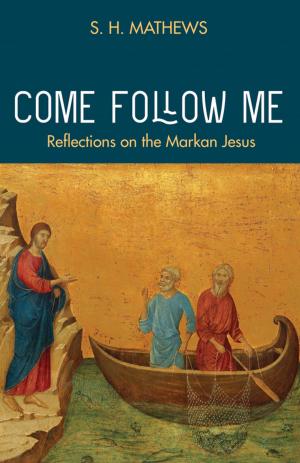| Author: | Tom Schwanda | ISBN: | 9781630879501 |
| Publisher: | Wipf and Stock Publishers | Publication: | April 11, 2012 |
| Imprint: | Pickwick Publications | Language: | English |
| Author: | Tom Schwanda |
| ISBN: | 9781630879501 |
| Publisher: | Wipf and Stock Publishers |
| Publication: | April 11, 2012 |
| Imprint: | Pickwick Publications |
| Language: | English |
Spiritually there is a great hunger today for contemplative and more satisfying experiences with God. Puritanism might seem to be an unlikely source for this, yet few groups in the history of Christian spirituality have written more extensively or wisely on the subject. Isaac Ambrose (1604-64), a relatively forgotten English Puritan, developed a theological foundation for the spiritual life based upon the Christian's intimate union with Christ, which the Puritans often called spiritual marriage. Schwanda demonstrates that this vibrant relationship of union and communion with Jesus, inspired by the Holy Spirit, was manifested in a deep contemplative piety of gazing lovingly and gratefully upon God. At the same time, Ambrose did not neglect loving his neighbors. This study reveals how heavenly meditation was one of the significant practices engaged by Ambrose to cultivate spiritual intimacy and enjoyment of God. Further, his experiential reading of Scripture, in particular the Song of Songs, provided him with a language of ravishment and delight in God. This book provides a distinctively Protestant foundation for recovering the contemplative life while recognizing the significant contributions of the Western Catholic tradition.
Spiritually there is a great hunger today for contemplative and more satisfying experiences with God. Puritanism might seem to be an unlikely source for this, yet few groups in the history of Christian spirituality have written more extensively or wisely on the subject. Isaac Ambrose (1604-64), a relatively forgotten English Puritan, developed a theological foundation for the spiritual life based upon the Christian's intimate union with Christ, which the Puritans often called spiritual marriage. Schwanda demonstrates that this vibrant relationship of union and communion with Jesus, inspired by the Holy Spirit, was manifested in a deep contemplative piety of gazing lovingly and gratefully upon God. At the same time, Ambrose did not neglect loving his neighbors. This study reveals how heavenly meditation was one of the significant practices engaged by Ambrose to cultivate spiritual intimacy and enjoyment of God. Further, his experiential reading of Scripture, in particular the Song of Songs, provided him with a language of ravishment and delight in God. This book provides a distinctively Protestant foundation for recovering the contemplative life while recognizing the significant contributions of the Western Catholic tradition.















